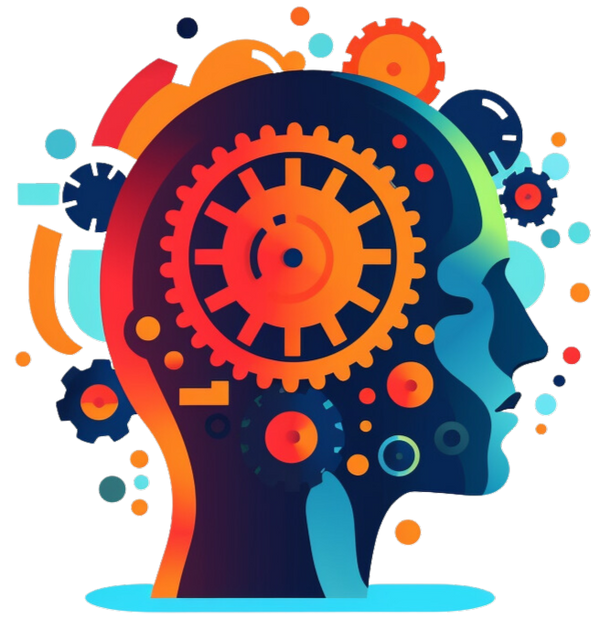
10 signs of ADHD in adults
Share
Misplacing or losing things, emotional outbursts and restlessness, and difficulty listening: we're all familiar with these symptoms. However, people with ADHD experience these symptoms so severely and frequently (often daily) that they become a burden in everyday life.
Do you know this? Has this made you "always" a fidget or a dreamer? Later, during puberty, perhaps a weirdo or the king/queen of excesses? Then an ADHD assessment could help you. Especially if you still suffer from high impulsivity, nervousness/drivenness, and a lack of concentration/inattention.
The following 10 signs usually occur in people with ADHD to a degree that makes everyday life difficult, is noticeable in professional life - and can also strain relationships:

1. Difficulty concentrating
People with ADHD often have problems controlling their attention and concentrating in everyday life:
- Easily distracted
- Daydreaming
- "Switching off" during conversations
- Overlooking instructions and details
- Failure to complete projects or tasks on time
Another symptom of ADHD is the tendency to hyperfocus on projects that are exciting and interesting, or that are perceived as urgent or vitally important. In this state, it is difficult to focus attention on other important tasks or people in life.
At the same time, this trait can be very helpful in professional life. A person with ADHD who is talented/experienced in their field and enthusiastic about their job can easily complete tasks that would otherwise require two or three employees . Or the same task, but in half or a third of the time.

2. Misplacing/losing items
Storing, organizing, or keeping track of things is problematic for people with ADHD. Furthermore, things/clothes are often left lying around. Any memory of them is erased.
This may include:
- Misplacing everyday objects (e.g. car keys or wallet), leaving clothes on the bus or in a restaurant, putting bags down and not taking them with you
- After a moment of inattention, losing track of where an object has been placed.
- Constantly retrace steps to find lost items
- Storing and finding things in the wrong place
3. Frequent lateness
Due to poor time management, adults with ADHD often arrive late for appointments, dates, or social gatherings.
Reasons for this are:
- Unable to find necessary items (car keys, wallet, meeting notes, etc.)
- Forget appointments and times
- Underestimate the time required
- Distraction while preparing for an appointment or event, then erasure of the memory in working memory

4. Risky behavior
Research shows that adults with ADHD are more likely to engage in risky behaviors. These may include:
- Arguments or disputes begin
- Excessive spending, shopping addiction
- Reckless driving
- Substance use (alcohol or drugs)
- Risky sexual decisions (e.g. unprotected sex, cheating)
- Gambling to the point of addiction
- Impulsive eating
By seeking help and support, you can proactively reduce the likelihood of being involved in these activities.
5. Listening problems
Social interactions often feel challenging when you have ADHD. Difficulties can arise with:
- Waiting until it is your turn to speak
- Stay on topic
- Follow the conversation
- Use nonverbal cues to demonstrate active listening
- Speaking too quickly
- Talking too much
- Blurting out sentences that make others uncomfortable
- Not being able to read other people's body language

6. Difficulties in prioritizing
Adults with ADHD are almost always busy. However, deciding which task takes priority can be very difficult. The "conductor of the brain" in the frontal lobe, the so-called "executive functions," works differently.
You may have difficulty prioritizing for the following reasons:
- Feeling of having too much to do (which can be overwhelming and may even lead to “ADHD paralysis”)
- All tasks appear equally important
- Difficulty thinking ahead – you underestimate deadlines
- Looking for new things instead of familiar tasks that may be more significant and relevant
Adults with ADHD also tend to postpone tasks that require more focus and attention, which can lead to missed deadlines and problems at work.
7. Relationship problems
Problems in relationships with friends, colleagues, family or partners are another common problem for adults with ADHD.
There are several reasons why ADHD symptoms can cause tension, anger, and frustration.
Some ADHD characteristics that may lead to relationship problems:
- Not actively listening
- Forgetting important events and dates (like birthdays)
- Blurting out hurtful statements
- Failure to comply with duties, obligations or promises
- Difficulty regulating emotions
- Difficulty reading other people's emotions (because overwhelmed by one's own emotions > stress mode, possibly "freeze" reaction)
Despite these challenges, adults with ADHD can have happy relationships and fulfilling marriages (sometimes with people who also have ADHD). Seeking professional counseling and support is one of the best ways to work on this.

8. Nervous energy
Another sign of ADHD in adults is hyperactivity/restlessness. This manifests itself in several ways:
- leaps of thought
- Constant fidgeting
- Tics and impulsive behaviors
- Frequent overthinking and catastrophizing
- Difficulty sitting still
Fidgeting in adults with ADHD is often mistaken for inattention. However, fidgeting and stimming (e.g., making noises, rocking the upper body, blinking hard) can also be attempts to stay focused when a task doesn't provide enough brain stimulation.
Interestingly, this fidgeting can increase the ability to concentrate and focus in adults. Therefore, learning through movement—for example, while walking—is sometimes used to treat ADHD.
9. Memory problems
ADHD can impair working memory.
Working memory is the brain's short-term storage area. This is where adults with ADHD are most likely to experience problems due to dopamine.
Some examples:
- Forgetting things on shopping lists
- Leave important items at home
- Losing track of possessions
- Difficulty following instructions to complete tasks
- Having to reread sections of text because information is not retained
The ADHD brain tends to encode information in a disorganized manner, which disrupts the retention of new information. At the same time, this can lead to tremendous ability to connect and associate. Divergent thinking is then pronounced, high creativity, and quick and unconventional approaches to problem-solving are the rule rather than the exception.

10. Mild irritability
An estimated 70% of adults with ADHD experience significant mood swings (emotional dysregulation).
Adults with ADHD may notice the following signs of emotional turmoil:
- Enormous impatience under stress
- Explosive outbursts of anger
- Long-lasting irritability
- Tantrums when faced with everyday obstacles
- Sudden sadness/depression
- Ignorance of the other party's feelings
Professional therapy, medication, and self-care play a crucial role in managing ADHD-related anger (especially present in hyperactive ADHD).

1 comment
ich habe mich faßt 100%ig in diesem Beitrag wiedergefunden, und das hat mich direkt beruhigt. So manches Mal dachte ich an Alzheimer erkrankt zu sein.
Jetzt heißt es nur den nächsten Schritt tun, und das fällt schwer.🙁